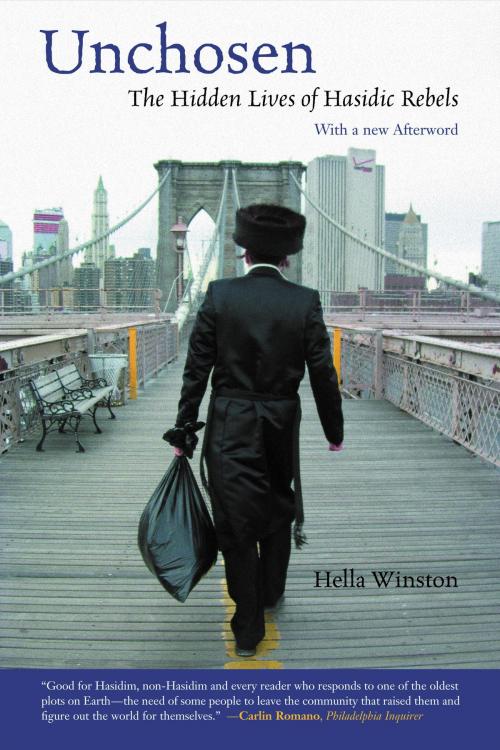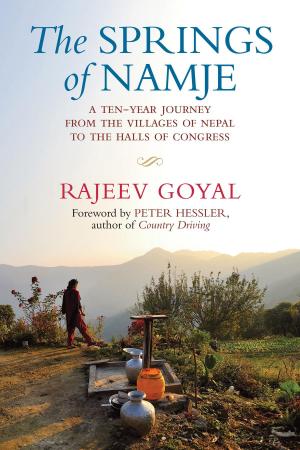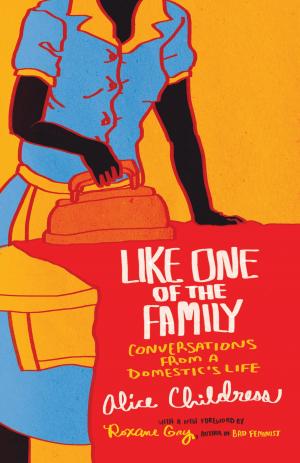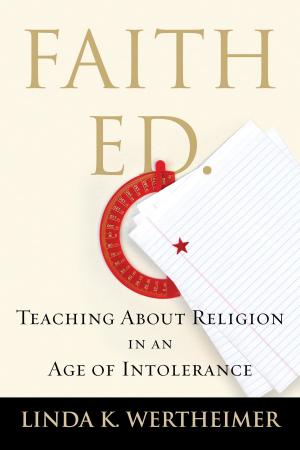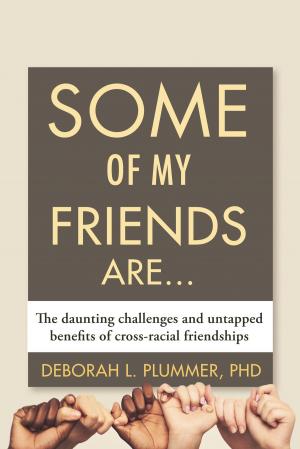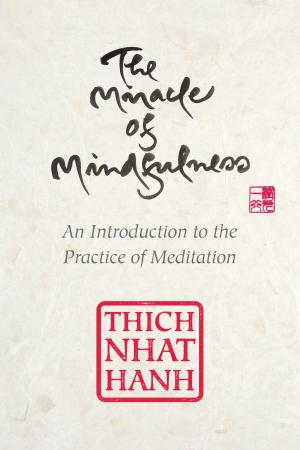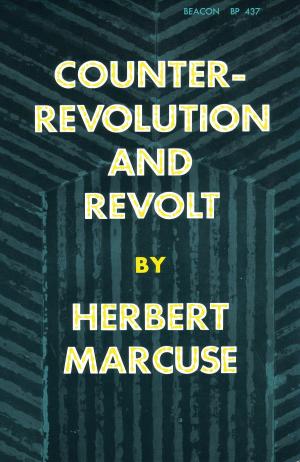Unchosen
The Hidden Lives of Hasidic Rebels
Nonfiction, Religion & Spirituality, Judaism, Social & Cultural Studies, Social Science| Author: | Hella Winston | ISBN: | 9780807036280 |
| Publisher: | Beacon Press | Publication: | November 15, 2006 |
| Imprint: | Beacon Press | Language: | English |
| Author: | Hella Winston |
| ISBN: | 9780807036280 |
| Publisher: | Beacon Press |
| Publication: | November 15, 2006 |
| Imprint: | Beacon Press |
| Language: | English |
Honorable Mention in the 2012 Casey Medals for Meritorious Journalism
When Hella Winston began talking with Hasidic Jews for her doctoral dissertation in sociology, she was excited to be meeting members of the highly insular Satmar sect. While several Jewish journalists and scholars have produced largely admiring books describing the Lubavitch way of life and that group's outreach efforts to unaffiliated Jews, very little has been written about the many other Hasidic sects in the United States. Unlike Lubavitchers, members of these other groups are raised to avoid all unnecessary contact with outside society, including contact with other Jews. Winston's access was all but unprecedented.
As a nonobservant Jew with little prior exposure to the Hasidic world, she never could have guessed what would happen next-that she would be introduced, slowly and covertly, to Hasidim from Satmar and other sects who were deeply unhappy with their highly restrictive way of life and sometimes desperately struggling to leave their communities. First there was Yossi, a young man who, though deeply attached to the Hasidic culture in which he was raised, longed for a life with fewer restrictions and more tolerance. Yossi's efforts at making such a life, however, were being severely hampered by his fourth grade English and math skills, his profound ignorance of the ways of the outside world, and the looming threat that pursuing his desires would almost certainly lead to rejection by his family and friends. Then she met Dini, a young wife and mother whose decision to deviate even slightly from Hasidic standards of modesty led to threatening phone calls from anonymous men, warning her that she needed to watch the way she was dressing if she wanted to remain a part of the community. Someone else introduced Winston to Steinmetz, a closet bibliophile worked in a small Judaica store in his community and spent his days off anxiously evading discovery in the library of the Conservative Jewish Theological Seminary, whose shelves contain non-Hasidic books he is forbidden to read but nonetheless devours, often several at a sitting. There were others still who had actually made the wrenching decision to leave their communities altogether.
Already called a "must read" by Hasidic blogger "Shtreimel," Unchosen tells the fascinating stories of these and other rebel Hasidim, serious questioners who long for greater personal and intellectual freedom than their communities allow. In so doing, Unchosen forces us to reexamine the history of these communities and asks us to consider what we choose not to see when we romanticize them.
Honorable Mention in the 2012 Casey Medals for Meritorious Journalism
When Hella Winston began talking with Hasidic Jews for her doctoral dissertation in sociology, she was excited to be meeting members of the highly insular Satmar sect. While several Jewish journalists and scholars have produced largely admiring books describing the Lubavitch way of life and that group's outreach efforts to unaffiliated Jews, very little has been written about the many other Hasidic sects in the United States. Unlike Lubavitchers, members of these other groups are raised to avoid all unnecessary contact with outside society, including contact with other Jews. Winston's access was all but unprecedented.
As a nonobservant Jew with little prior exposure to the Hasidic world, she never could have guessed what would happen next-that she would be introduced, slowly and covertly, to Hasidim from Satmar and other sects who were deeply unhappy with their highly restrictive way of life and sometimes desperately struggling to leave their communities. First there was Yossi, a young man who, though deeply attached to the Hasidic culture in which he was raised, longed for a life with fewer restrictions and more tolerance. Yossi's efforts at making such a life, however, were being severely hampered by his fourth grade English and math skills, his profound ignorance of the ways of the outside world, and the looming threat that pursuing his desires would almost certainly lead to rejection by his family and friends. Then she met Dini, a young wife and mother whose decision to deviate even slightly from Hasidic standards of modesty led to threatening phone calls from anonymous men, warning her that she needed to watch the way she was dressing if she wanted to remain a part of the community. Someone else introduced Winston to Steinmetz, a closet bibliophile worked in a small Judaica store in his community and spent his days off anxiously evading discovery in the library of the Conservative Jewish Theological Seminary, whose shelves contain non-Hasidic books he is forbidden to read but nonetheless devours, often several at a sitting. There were others still who had actually made the wrenching decision to leave their communities altogether.
Already called a "must read" by Hasidic blogger "Shtreimel," Unchosen tells the fascinating stories of these and other rebel Hasidim, serious questioners who long for greater personal and intellectual freedom than their communities allow. In so doing, Unchosen forces us to reexamine the history of these communities and asks us to consider what we choose not to see when we romanticize them.
